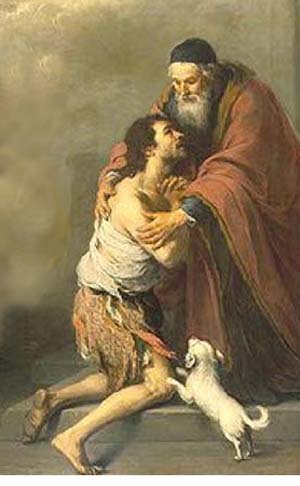The Joy of Discovery
Today’s object is a picture puzzle. You might use one of the large floor puzzles designed for kids to aid in visibility. They can build the puzzle in the center aisle where some people might be able to help in the exercise.
It will be a simple project. There aren’t too many pieces. Ask a couple of people to work together to build the puzzle as you talk about today’s parables. You could draw your children into the lesson by asking them to build the puzzle, if you like.
It is interesting that we call the stories “lost” stories. How would it change our understanding if we start to refer to the stories as The Found Sheep, The Found Coin, and the Found Son? That proposition can be what you discuss as your volunteers put the puzzle together.
Of course, the puzzle is rigged. One piece will be missing. Perhaps you have it. Perhaps someone discovers it somewhere in the church. You can find a way to dramatize the joy when the puzzle is complete.
The joy of being made whole as members of God’s family is the point!


